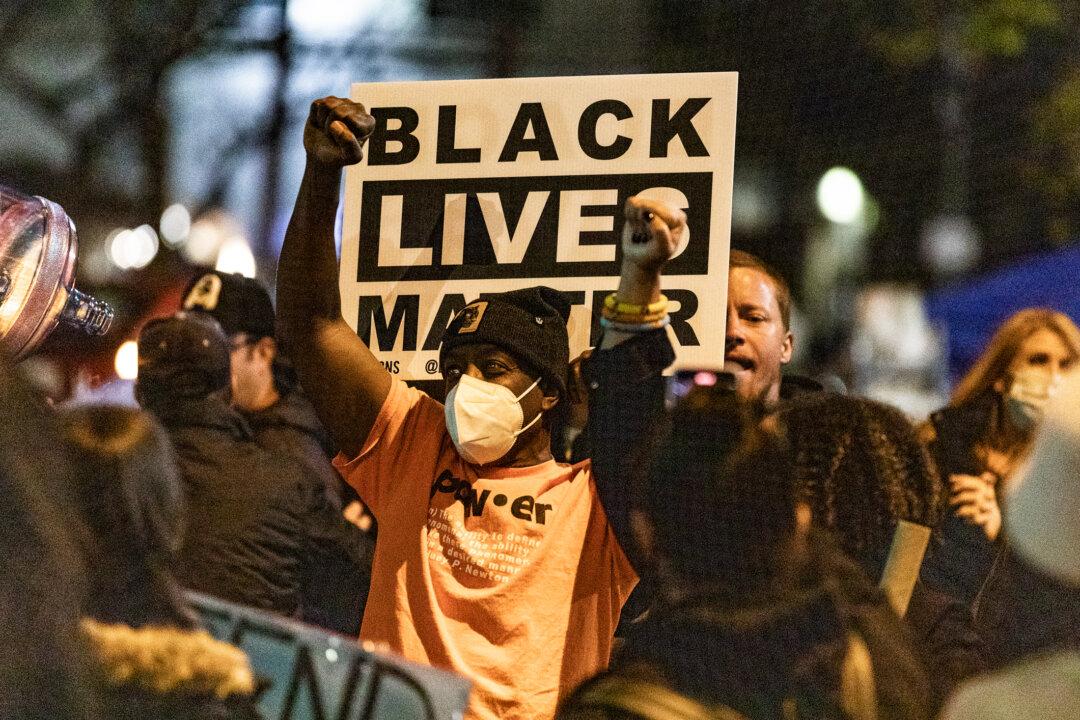LOS ANGELES—The Los Angeles City Council tentatively approved an ordinance today that would prohibit protests within 300 feet of the target’s residence, a policy developed after activists protesting the city’s COVID-19 vaccine mandate showed up at two council members’ homes late last month.
The ordinance received 12 yes votes, with Councilwoman Nithya Raman and Councilman Mike Bonin casting dissenting votes. The ordinance required unanimous approval on its first reading, and will be held until next week, when it will require 12 yes votes to pass.





